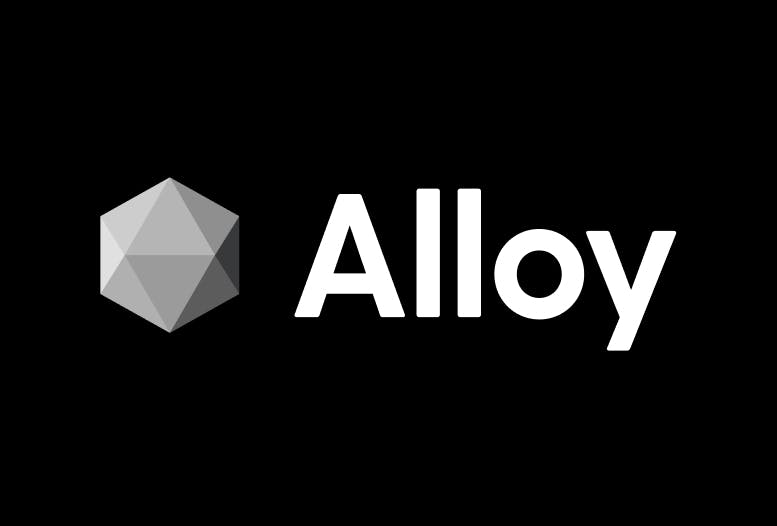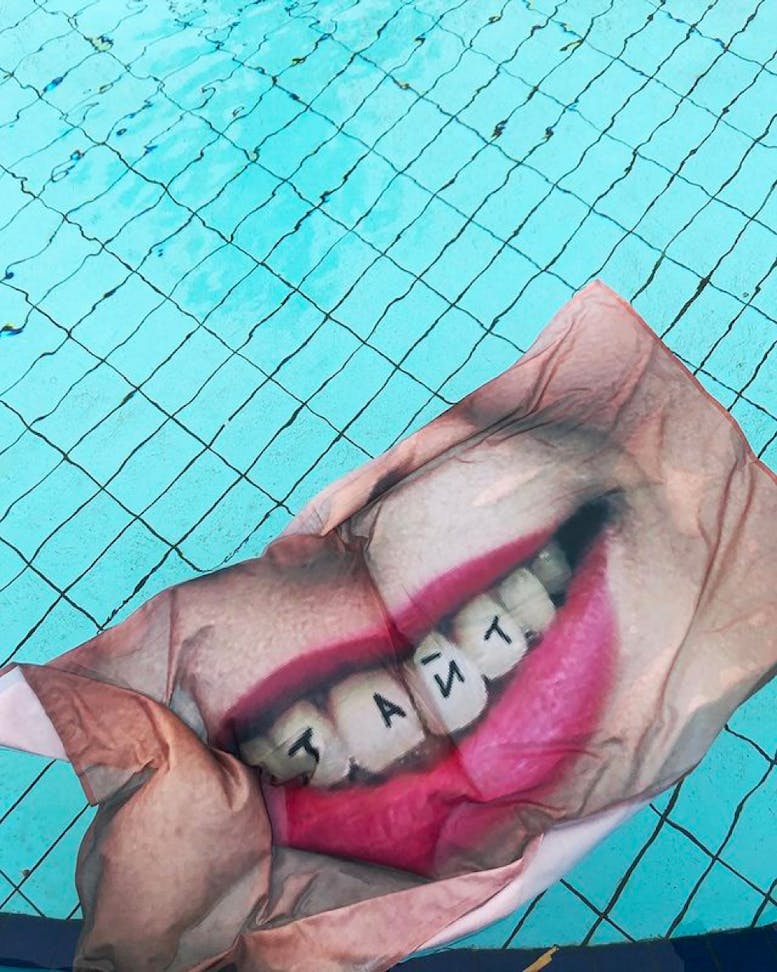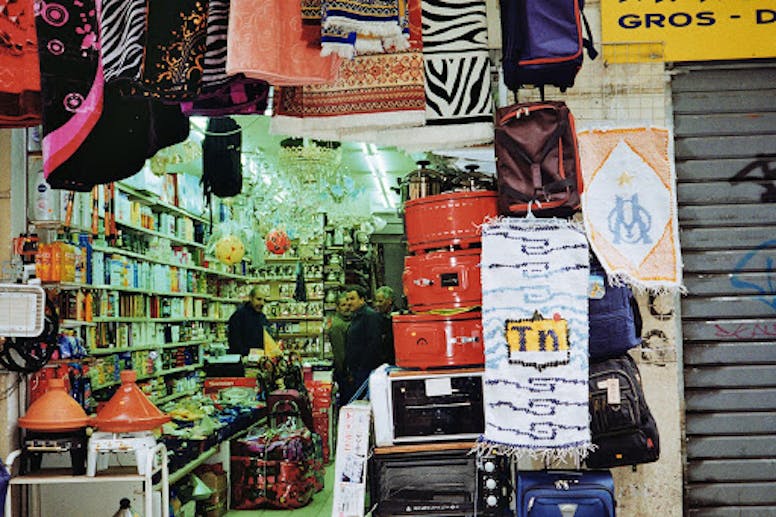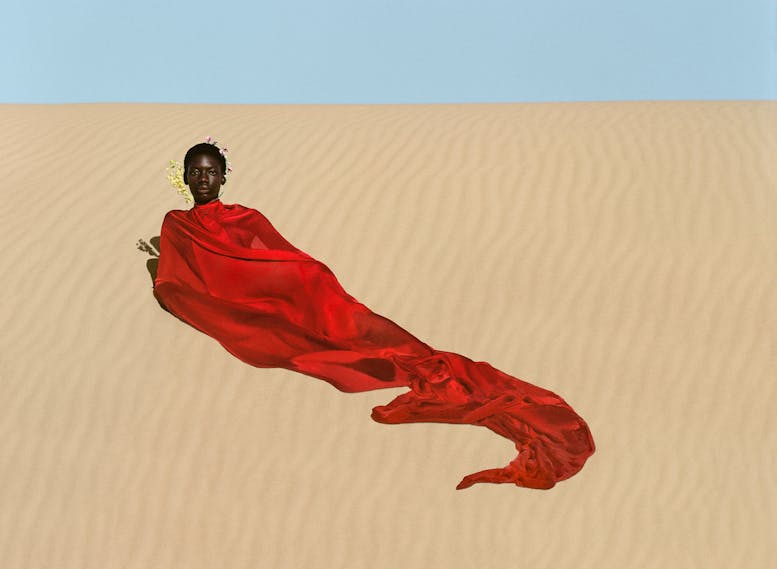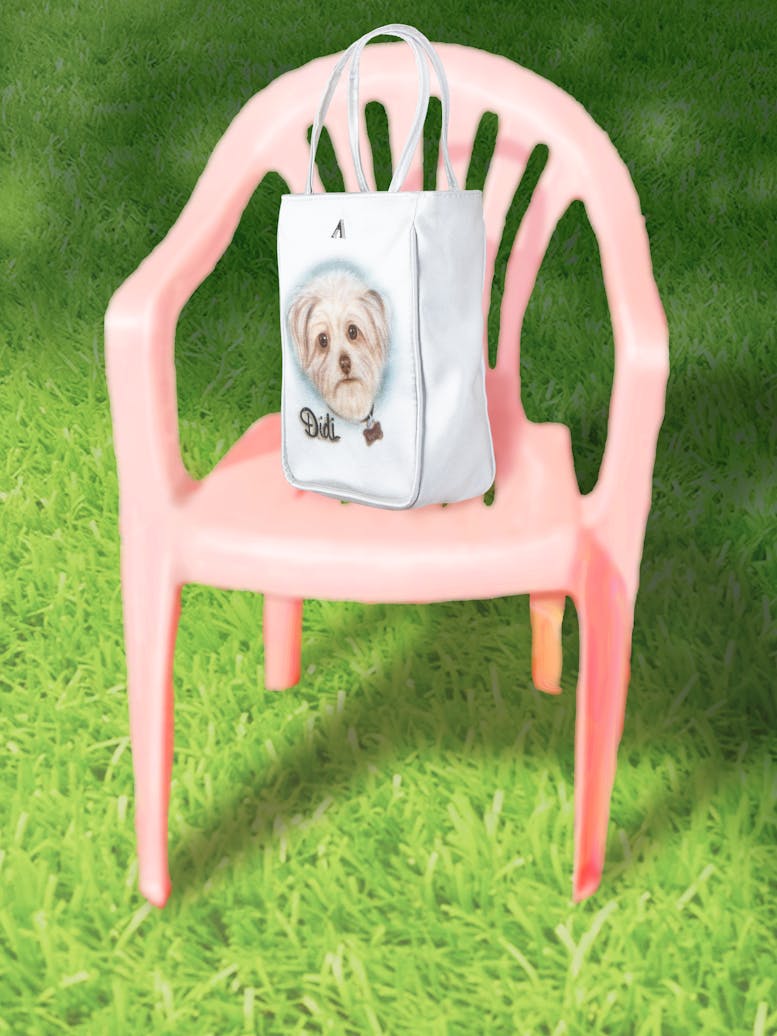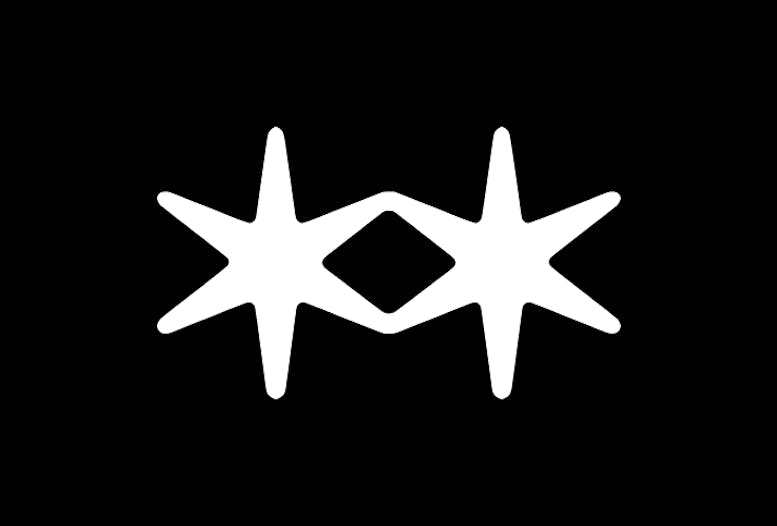Charles Broskoski
Charles Broskoski co-founded the website Are.na and is based in Brooklyn, NY. Prior to working on Are.na he studied fine art at Parsons and worked as the Engineering Lead at Artsy. He is currently working on Are.na full-time alongside a small team.

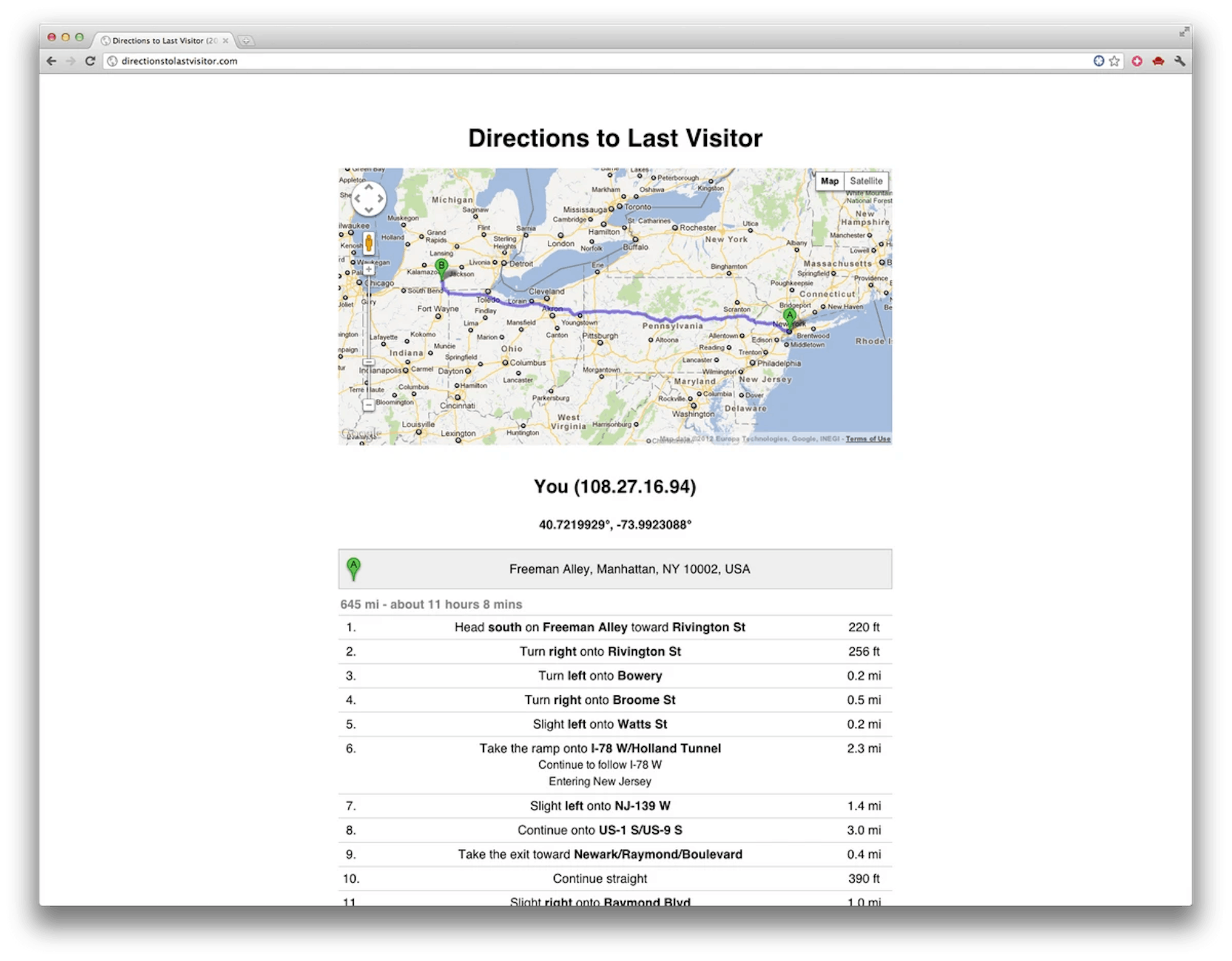

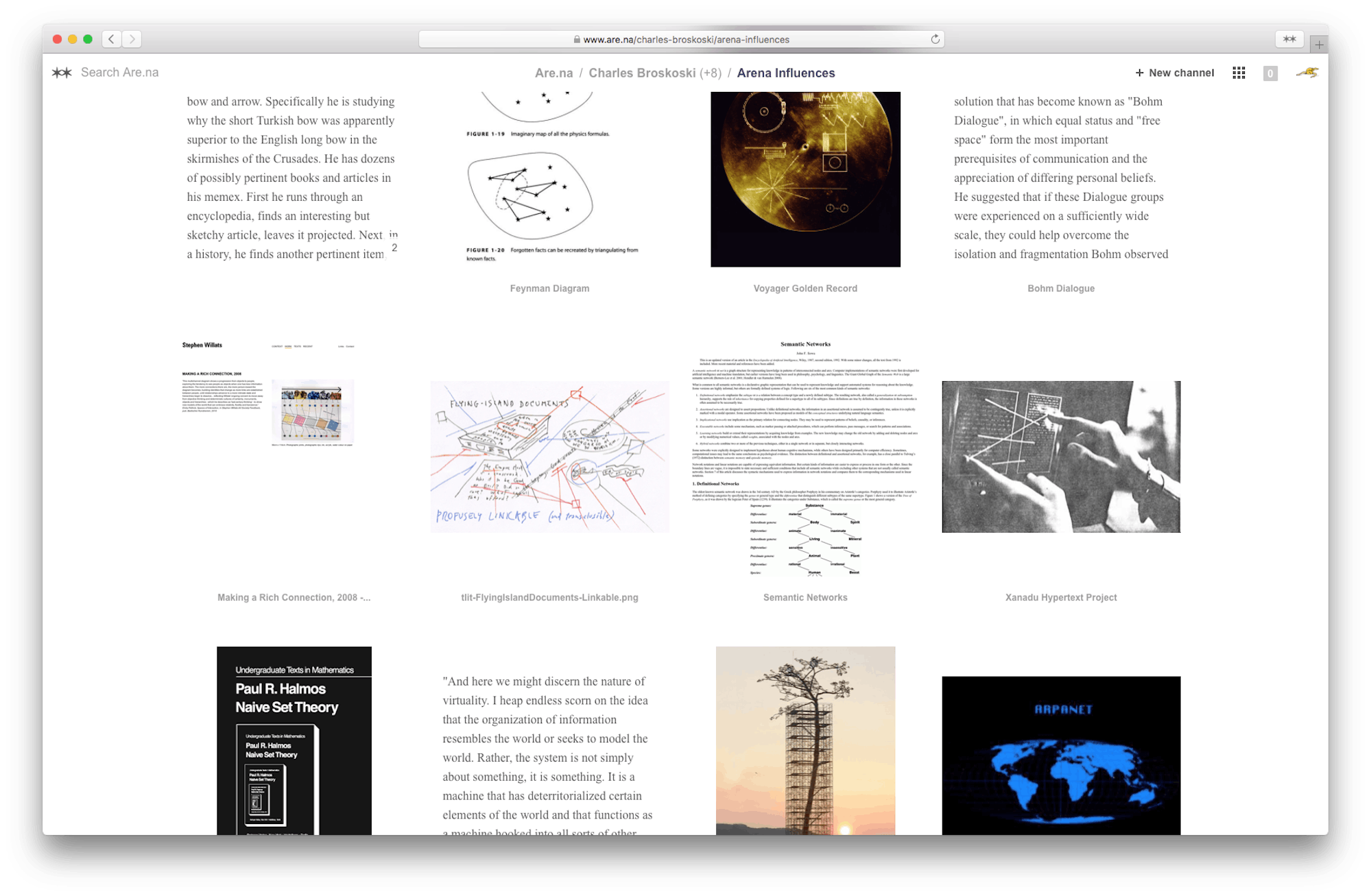
What tools do you use for your practice?
Software-wise, I'm fairly opinionated and I hate most "tools". I tend to end up using things that are stable, performant and fairly generic in terms of look and feel. Like VSCode. I know some people that are obsessed with using Emacs or VIM and I guess I can see the draw towards being into that, but most of the time, tools and tooling are not something I really want to think about. Or maybe I think about the concept of "tools" so much for Are.na that I'd rather not use up any more energy on that in my personal life.
For Are.na, the company, we started using Linear recently for issue tracking. That was the last piece of software I was truly impressed with, and mostly just because it's really solid and fast.
Hardware-wise, similarly. The only difference is that I also stretch out the things I buy for an unhealthy amount of time. Until very recently, I had a nearly broken iPhone 6s that ran out of battery every 2 hours. This particular behavior is not something that I romanticize though, it's a sickness.
What’s your daily schedule?
Really having trouble answering this question because Are.na is such a small company, and we end up doing all the jobs, and that involves being fairly reactive to whatever comes up. So my day to day is pretty varied, not a lot of hard hour-by-hour schedules, apart from meetings. Generally I get up around 7:30, make coffee and start a fire (I live in a place that is primarily heated by a wood stove) and then I read for an hour or so. That is really the only constant day to day.
Something I think about alot: both Ian Cheng and Cory Arcangel, two people who I really respect, have extolled the virtues to me of getting all one's creative work in the mornings and more admin-type work in the evening. I love this idea, and my ideal self sticks to this concept with rigor. Unfortunately, the real me cannot do this. It takes me a while to warm up and I usually don't get into a good groove until after lunch time.
How much does the Are.na community affect the direction of the product?
An immeasurable amount, both directly and indirectly. We read and discuss almost everything that comes in through the feedback channels, Daniel and I answer all the support questions ourselves, and we are both highly available to anyone who wants to talk to us. So when a person has feedback or an issue, we are dealing with it directly. This is both the blessing and curse of being a really small company. We have a fairly good handle on what the pain points are on Are.na and we prioritize accordingly.
And indirectly, obviously the broader community is highly influential as most of our media diet is coming (in one way or another) through Are.na. So there's an ambient, more abstract influence that is happening there as well.
The only thing we are unwaveringly stubborn about are the feedback requests that are along the lines of replicating other standard social-networking patterns. A like button, for example. It will never happen.
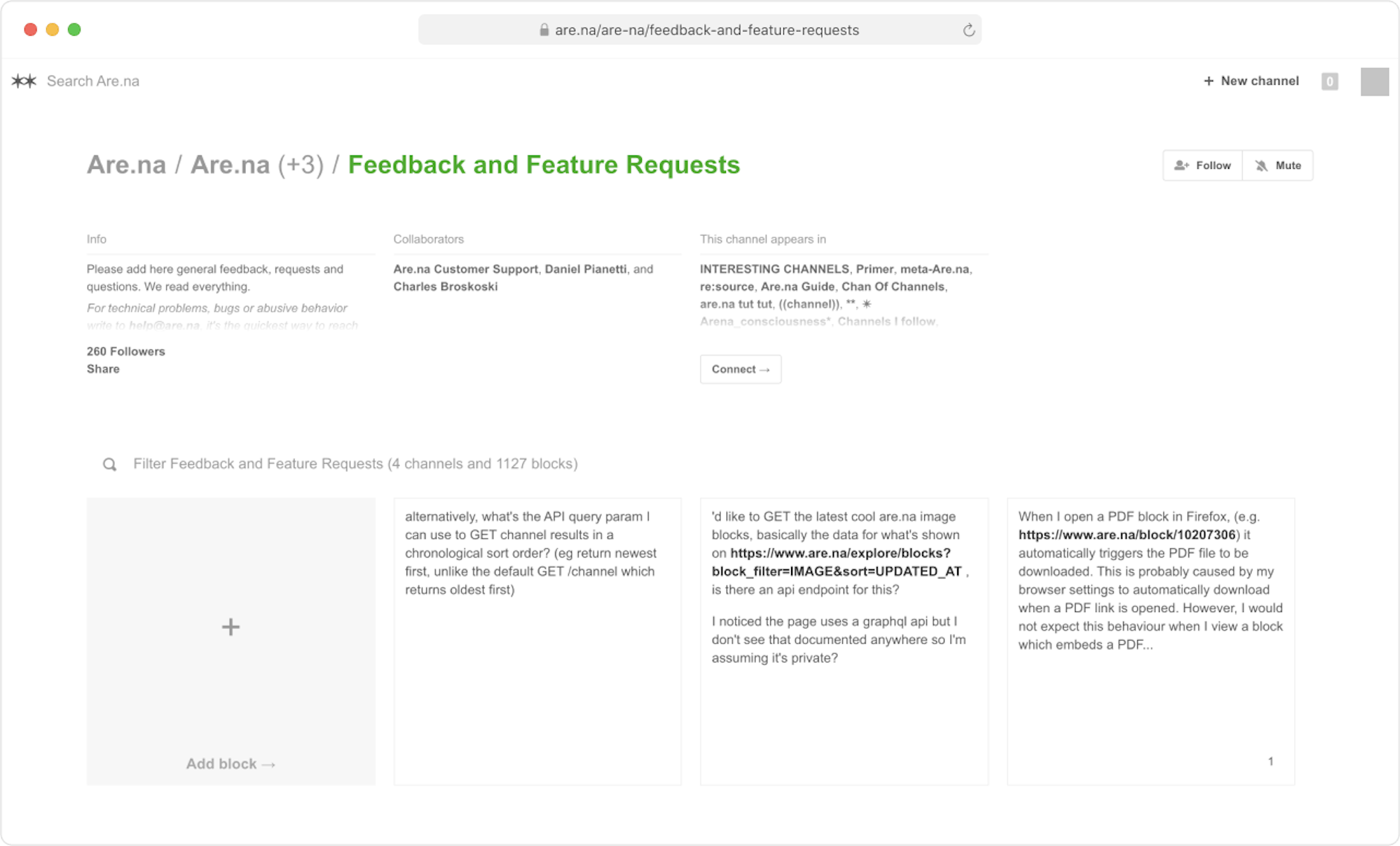
What are your thoughts about the emergence of Dapps and do you see any decentralized applications for Are.na?
I'm definitely interested and really glad there is such a big movement towards these ideas, but I think at this point and at our scale, prioritizing a real exploration of converting to decentralized architecture doesn't necessarily play to our strengths. We are less of a company that is about hardcore software engineering and more of a company that consists of artists that know how to program and/or deal with technology. Until someone makes a Rails for building on Ethereum (or Dat or IPFS) and its performance is on par with something we can get from a more standard stack, it won't be super relevant to us, unfortunately.
There are other solutions to this problem (the problem of data portability) that are maybe a bit scrappier and more straightforward. We are more interested in solutions that are more about employing healthy culture, rather than trying to always go for technological solutions.
How is your practice affected by your physical environment?
In Brooklyn, I had a pretty cramped setup, and here now I have my own room for working, which really helps. I'm a bit embarrassed to show pictures of it right now (it's basically empty).
What is your personal relationship like with social media?
My relationship with social media isn't quite what I'd like it to be because I'm also the social media manager for Are.na (Twitter and IG). For whatever reason, on weekdays I usually post a featured channel on IG in the morning before I start "work" and after I read for a bit. I guess I do it in the morning because if I don't get it out of the way, I'll think about it for too long. The positive side of it is that I usually spend a little part of my mornings surfing through Are.na.
I open both Twitter and IG more times than I would really like to in a day as a result. Eventually, I would love to hand the job off to someone else (or better yet, delete our social media accounts altogether), but neither of those things seem particularly realistic or logical right now. Maintaining social media accounts and editorial projects are the only form of "marketing" we do, and for better or worse, they help people find out about Are.na (who wouldn't otherwise). Chris Barley describes our strategy as trying to siphon all the interesting people from other platforms.
How do you see yourself in the future?
In the next year, we'd like to double our monthly revenue. That would really put us in a good position financially to be able to hire more people and improve Are.na and enact some of our plans faster.
In three years, we want to figure out either a system or corporate structure to start to provide liquidity to our early investors (from the crowdfund and outside the crowdfund). We think there are ways that Are.na can be structured that more accurately reflect our values and involve the broader community more (see this article about Exit to Community).
In five years, we would love to have a more permanent physical space. Think libraries and a dedicated space for residencies.
Where do you spend money and where do you make money?
If you're asking about Are.na we spend pretty efficiently. Most of what we make in a month goes right back into Are.na, either through paying ourselves so that we don't have to do outside work, paying part-time engineers to help us improve the product, paying infrastructure costs, etc. We keep a healthy buffer for emergencies, but apart from that, we try to stay flexible and scale our investment into Are.na right alongside our revenue growth.
How many people do you consider a part of your practice?
This is a specifically hard question for me as I did a presentation a few years back about how “everything is collaboration” and now think about authorship in a probably way too loose way. I guess the answer is really unquantifiable. You never know what piece of information is going to change your thinking on a particular topic and the provenance of any particular piece of information is really hard to pin down if you start thinking about “influence”.
But more concretely, we (Are.na) think about the people who are super active on there a lot and take feedback seriously. So even in realistic terms, the number is difficult to quantify.
What do you think is the most valuable asset for emerging products?
Open-mindedness and curiosity. At least in terms of making a product that is interesting or new in any way.
There’s this continual conversation that has to be had that is different than “what problem am I solving?”. The question is really more like “what is this thing now?”
What is a prediction you have about your industry that others may not know or agree with?
One of the things that I see people being super interested in right now is new economic systems for “creators”. The business part of “making things” is extremely uninteresting to me (at least on a systemic level). It’s tough to comment on because I don’t have a better alternative in mind, other than I think there are a lot of alternative ways to make things (that can become self-sustaining activities on their own) than people typically think of.
What's your favourite restaurant to order from?
There really isn’t that much to order from around where I am! In Brooklyn I would order a California burrito from Maya Taqueria.

